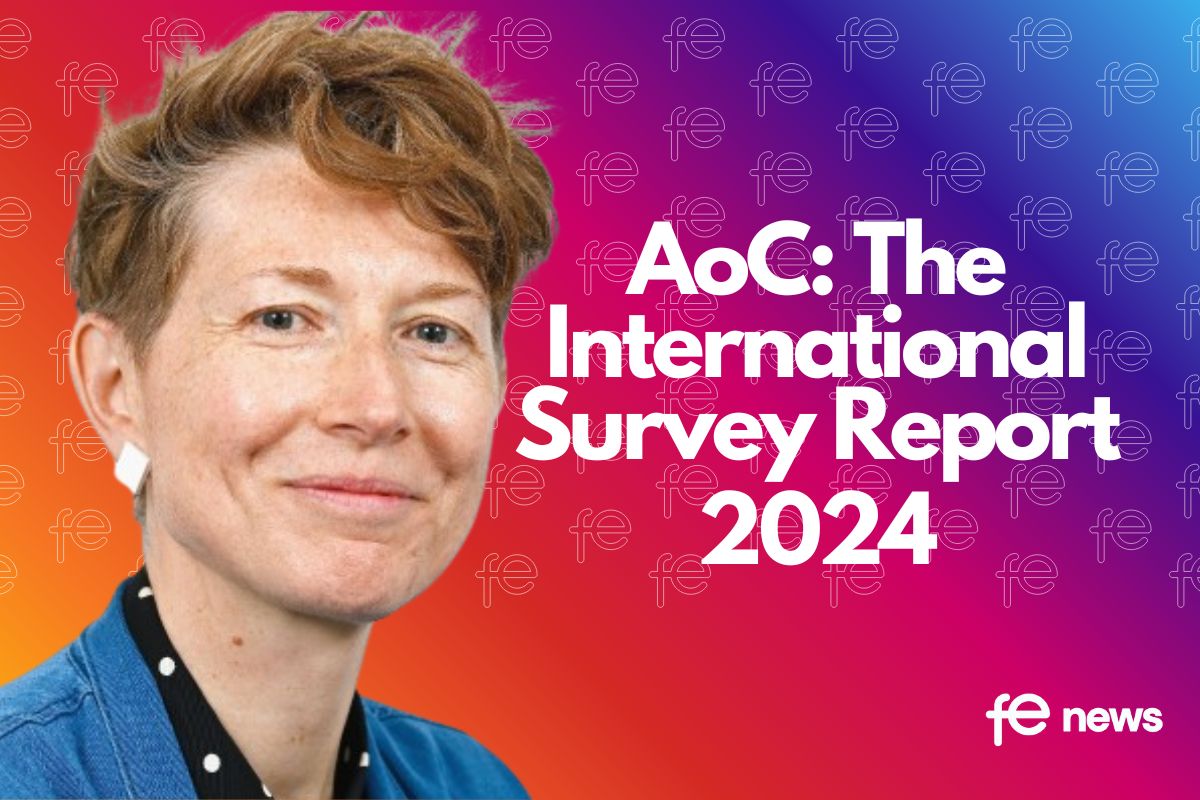AoC Report: Colleges See International Activity Rebound, but Challenges Remain

International activity in colleges is stabilising after the pandemic and Brexit, but policy challenges remain, a new survey has found.
Introduction
The International Survey Report, published by Association of Colleges (AoC), puts colleges’ international work under the microscope to identify emerging trends, challenges and opportunities impacting the sector. It had 40 responses from across the UK and covers the 2022/23 academic year.
Despite ever-growing interest in the UK’s international skills offer, there continues to be little information available about its scale and value compared to data for HE education export. This survey seeks to fill that gap.
Survey Findings
The survey found that colleges are conducting a range of activities including overseas campus operations, delivery of training programmes for international partners, student mobility programmes, student recruitment on long- and short-term programmes, international projects and online provision.
Financial Impact
In 2022/23, the average college international income (excluding overseas campus operations) was £800,000, while it was £614,000 in 2021/22.*
Colleges offer brilliant value for money to international students, with the HE fees charged by colleges at least half the international fees charged by many UK universities. It also found that international students have a big impact on their local communities, with a cohort of 30 full-time international students spending an estimated £321,840 per year in the local economy (based on a 36-week course).
Around 79% of colleges welcomed students from Ukraine, and colleges remain places of sanctuary for many refugees and asylum seekers.
The majority of colleges (89%) said that they worked internationally to provide student mobility opportunities for students, for example through the legacy Erasmus+ and Turing Scheme. However, 71% of colleges also stated that engagement with EU partners has decreased and 61% highlighted a decrease in the number of EU students studying in their college.
Challenges
Around 63% of colleges stated that staffing capacity has had a negative impact on international work. The survey found a significant fall in the number of colleges with at least one member of staff dedicated to international work with only 21% reporting having a member of staff solely responsible for international engagement, compared to 72% reported in 2021/22.
The survey also found that colleges continue to face barriers to international student recruitment: almost most half (45%) cited student sponsor licence regulations as a challenge to recruiting internationally – a longstanding issue reported by the college sector – and 58% said accommodation was a key challenge.
Nina Chorzelewski, Policy Manager, Association of Colleges, said:
“Once again, this report highlights positive engagement of the FE sector in the international space. FE colleges continue to value working globally, through creating student mobility experiences, ensuring they are places of sanctuary, and providing a wide variety of opportunities for diverse groups of people, all of which can be potentially life changing for students.
“However, the report also draws attention to the increasing number of challenges colleges face with internationalisation, and policy commitments are needed to ensure the sector has the security to develop and strengthen its international work, which is seen as important for many colleges.”
Emma Meredith, Director of Skills and International Policy Association of Colleges, said:
“The fantastic international work delivered by colleges is too often under-reported and undersold. With a general election coming up fast, the next government has the perfect opportunity to support colleges to realise their skills export potential and to recognise, not penalise, the contribution of international students to our communities.”
In April, AoC published an in-depth policy paper on international activity, which highlighted that:
- immigration policy restricts the recruitment, integration and contribution of non-UK students in colleges.
- Brexit and geopolitical shifts have changed the UK trade and immigration landscape, at a time when national and international demand for skills is rising.
- bureaucratic factors limit college access to education export opportunities, constraining their international potential.
Building on the policy paper and responses from this report, AoC recommends that:
- The student visa policy is reviewed both in terms of the regulatory burden it places on colleges and the restrictions it places on recruitment to college courses. The UK needs a national industrial strategy aligning employer and economic needs with immigration policy, matched with investment in colleges to train the workforce of the future.
- The UK rejoins the Erasmus+ programme for EU/EEA student and staff mobility, and the Turing Scheme continues as a ‘rest of the world’ scheme, celebrating the UK’s strong ties across the world, including in the Commonwealth. Additionally, short, unpaid vocational work and teaching placements should be permitted through UK visitor immigration routes in the same way that short term study is currently permitted.
- The government’s data collection on college internationalisation activity is improved.
- The export potential of the UK’s skills sector – and the central role of colleges – is given more government support to boost capability and capacity and inward investment strategy pitches England’s college network as local training and delivery partners for overseas companies.
*Survey data varies year on year depending on which colleges respond and the level of international work they undertake.











Responses